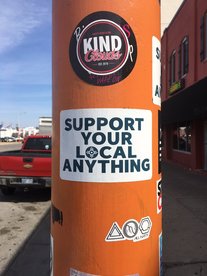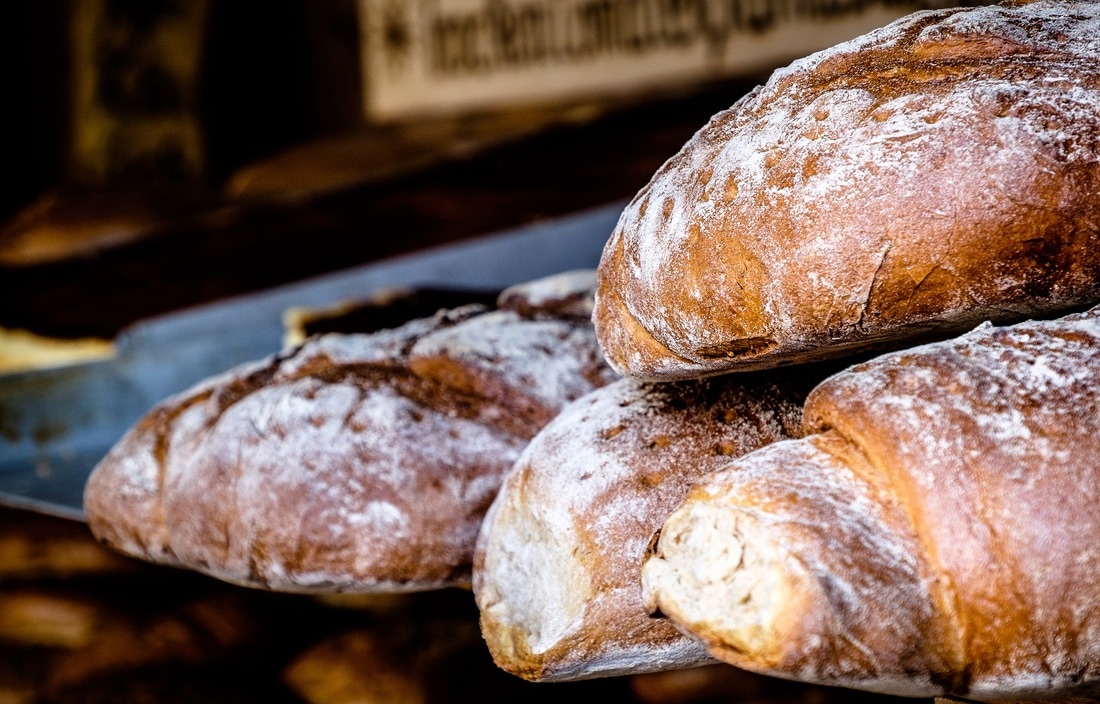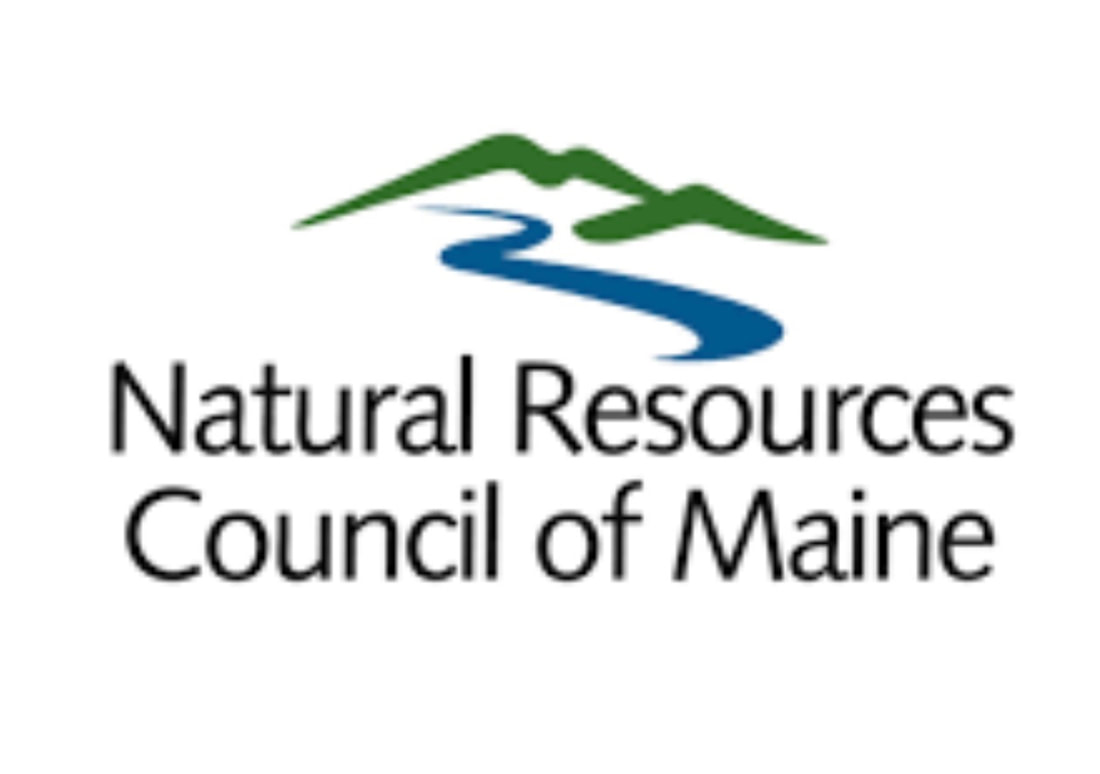 When I did research and writing in Princeton, NJ, last summer, I saw a sign at a local coffee shop (hey, everybody needs a break now and then). It read: "Support your local anything!" In a world growing together - chances but also challenges being perceived as global -, the slogan to "think global and act local" is as timely as ever. And it is a question of alertness how to be an alert citizen instead of just a egoistic customer looking for the best bargain. Support your local anything - yes. Wednesday was a day where I put this into practice in terms of shopping. I wanted to buy Easter chocolates for dear friends, groceries for a meal I had planned to cook, and a cake for dessert for a dinner for a friend after our local wednesday meeting at church. It would have been easy to go to a supermarket to get it all at once. But it felt right, to put into practice: Support your local anything. And I live in a neighborhood which makes this kind of approach easy. So I went on my bike in pouring rain to our farmer's market for the groceries, continued to a master chocolatier around our corner and went to a Greek bakery right across from where we live for cake. Before church I bought the last item missing at a local artisan bakery - a loaf of crunchy whole grain bread. Everything I bought is handmade, freshly made - and I would look the people who had done it, right into their eyes. Support your local anything! While I was pondering this approach I remembered a note from fellow Christian Science practitioner Kate Mullane Robertson: what if the answer to achieving world peace, saving the environment and ending poverty, is as simple as doing unto others, as you would have them do unto you.. Because here it was: A deeper dimension of "Support your local anything." Not replacing the most obvious one, but adding another aspect to "local". The spiritual dimension of supporting each other "locally" because we are made to love each other. As tremendously important it is to embrace the world, take care of the environment, be informed about politics and understand what it means to be a citizen - it is even more important to support our local ... anything. Truly loving locally, the people we know, the people we meet, our immediate surrounding. It was natural to be aware of an elderly lady in this fancy bakery - remember, I was there to buy a loaf for the dinner after the wednesday meeting at church - who inquired shyly the price for each loaf (each bread handmade, so the price more on the higher end) and invite her for a loaf. She looked at me and said: "Where in the world does something like this happen?" To which I replied: "Here and now." John didn't believe a word when people said they loved God but weren't interested in people. Something like caring for humanity, but disliking people right in front of them. John's thing was not "abstract caring", but concrete, active love. In the beautiful translation of J.B. Philips it sounds like this: "If a man says, “I love God” and hates his brother, he is a liar. For if he does not love the brother before his eyes how can he love the one beyond his sight? And in any case it is his explicit command that the one who loves God must love his brother too." (I John 4: 20,21) John had learned this kind of thinking from the Master, from Jesus himself. During his execution, Christ Jesus' ability and willingness to forgive, what he did on the cross, changed the world. This forgiveness and love went so deep that it included the soldier who had actually fixed Jesus' hand with a steel nail to a cross. Christ Jesus' unconditional love was more local than we can possibly imagine - and that is our model. Here you have it. |
Who is writing?
In my work as Christian Science practitioner and writer I draw on listening to God and listening to people. Categories
All
My Archive
October 2023
|





